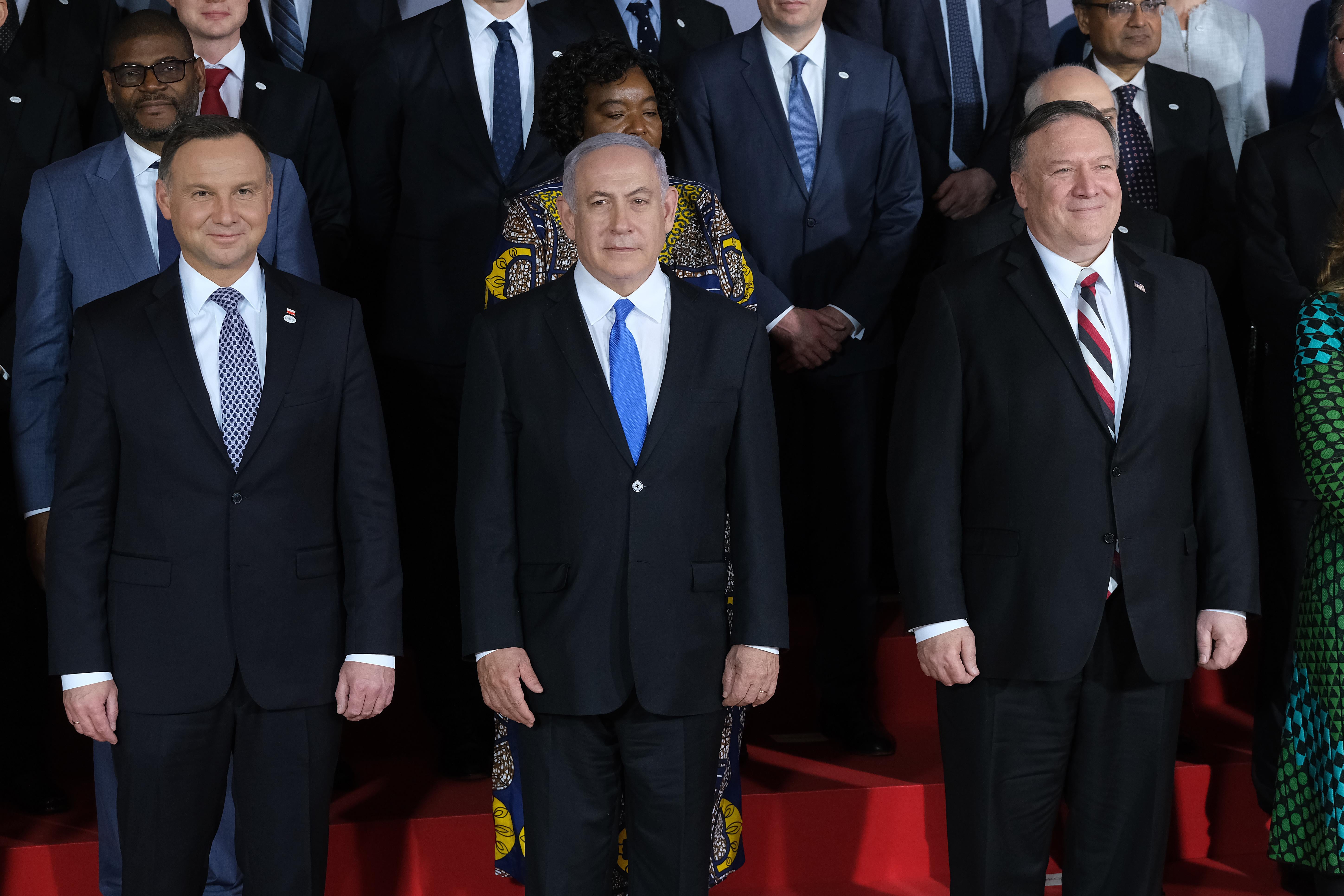Did Israeli Prime Minister Benjamin Netanyahu just say the quiet part out loud?
The tweet was part of a translation of remarks Netanyahu made in front of the incongruous backdrop of a Polish skating rink after a meeting with Oman’s foreign minister. Both were in Warsaw for a Mideast summit co-hosted by the U.S. and Poland. According to Mideast analyst Michael Koplow, “war with Iran” is a misleading translation of a phrase that could mean “combating Iran.” The tweet has been deleted and replaced with a statement using “combating Iran,” but the “war” version made it into some headlines, which have since been updated.
Whether it was a simple screw-up, a dog whistle, or a Kinsley gaffe, the confusion over the remark’s intentions is characteristic for this whole conference. When first announced last month, the summit was billed as having a focus on Iran’s “destabilizing influence,” as Secretary of State Mike Pompeo put it. Iranian Foreign Minister Mohammad Javad Zarif dismissed it as a “desperate anti-Iran circus.”
Later, the focus was broadened to the Middle East in general, including issues like the Israeli-Palestinian conflict, the fight against ISIS, and the conflicts in Syria and Yemen. Some officials denied that Iran was the focus at all, likely in a bid to entice participation from more countries, many of which are critical of the Trump administration’s Iran policies.
It didn’t quite work. While around 60 countries are in attendance, the notable absences include most of the signatories of the 2015 nuclear deal that Trump has pulled the U.S. out of. Russia and China won’t be there. Neither will France, Germany, or the EU’s high representative for foreign affairs. British Foreign Secretary Jeremy Hunt is attending but says he mostly wants to talk about Yemen. These so-called E3 countries announced plans last month to set up a payment system to continue conducting trade with Iran in defiance of new U.S. sanctions.
The Palestinian Authority is also boycotting the meeting, as it has most contact with U.S. officials since Trump’s decision to move the U.S. Embassy in Israel to Jerusalem. This doesn’t bode well for the long-anticipated rollout of the Jared Kushner peace plan, which may begin next week.
If the purpose of this summit was to demonstrate international unity behind Trump’s aggressive policies toward Iran, it has fallen short.
The conference does present an opportunity for some of the countries involved. For the host, Poland, which is not normally known for its interest in Middle East politics, the event may have more to do with concerns about Russia than Iran. Poland’s government has been trying to convince Trump, despite his natural inclinations about Vladimir Putin, to maintain U.S. troop deployments in Poland. President Andrzej Duda even went so far as to say, at a meeting in September, that a new base for U.S. troops could be called Fort Trump. The conference is a way for Poland to demonstrate its pro-U.S. bona fides, in contrast to the frosty western Europeans.
For Netanyahu, as he suggested in his statement, the meeting is a rare chance to have public meetings with Arab leaders. After years of regional isolation, Israel has been quietly building contacts and increasing cooperation with Sunni Arab governments against mutual foe Iran. These contacts are still sensitive—most of these countries still don’t have formal diplomatic relations with Israel—and Netanyahu’s “war” remark may draw some unwanted attention to them.
